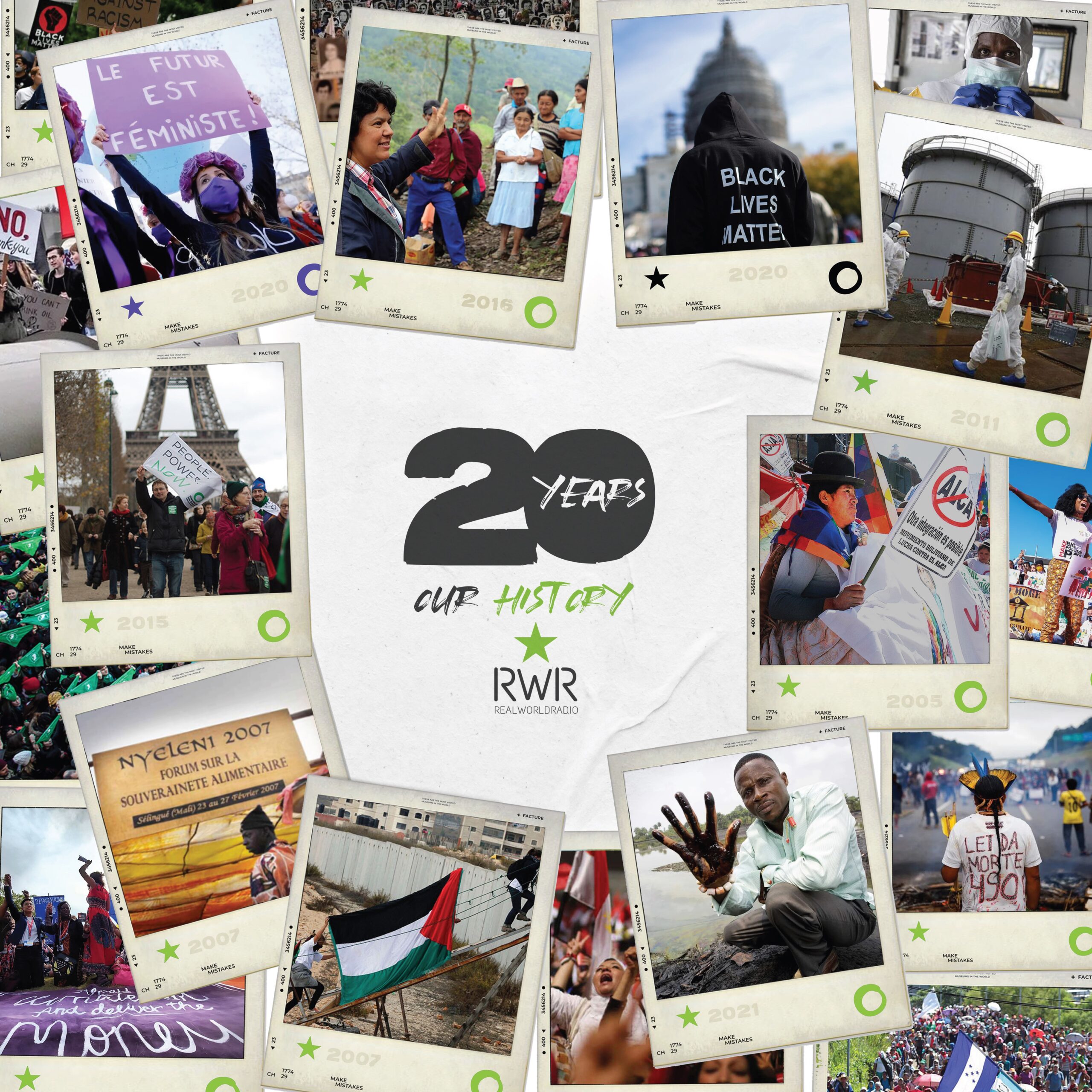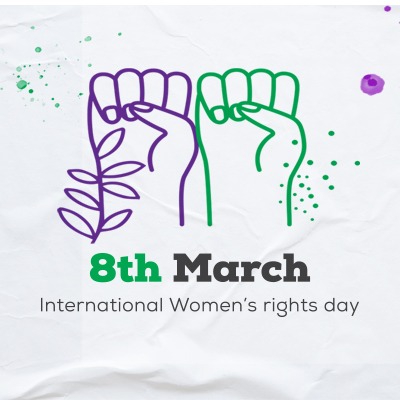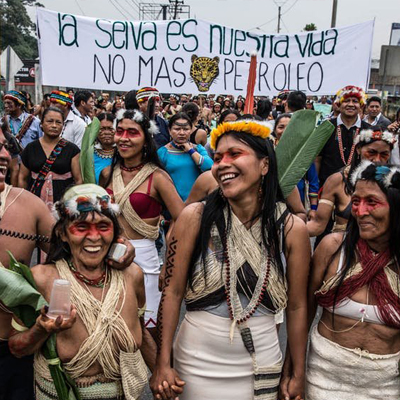Our history: 20 years of Real World Radio

In 20 years, Real World Radio (RWR) has changed, just like reality. Different people have worked on the project, we transformed our website, we diversified our products and broadened our reach to all regions.
But our identity remained the same, as did our conviction to be a communications outlet by and for social movements.
RWR was born in 2003 as a political project of REDES – Friends of the Earth Uruguay (REDES-FoE) in coordination with Friends of the Earth International (FoEI), the world’s largest environmental federation. We decided that it was essential to have a space to generate content, and to share information and in-depth political analyses about the impacts of neoliberal globalisation. This globalisation was denying peoples’ rights and destroying territories and livelihoods, threatening food sovereignty and public services, to name just two examples.
Reporting on these impacts alongside movements and communities most affected was our commitment from the beginning, when we covered the Summit of the World Trade Organisation (WTO) in Cancun, Mexico, one of the milestones of the struggle in defence of peasant agriculture.
We joined a collective effort to weave alter-globalisation communications against neoliberalism by coordinating with social movements and the extensive network of community radios in Latin America.
We generated and joined processes of convergence, with the intention of being a “radio of radios”and, in articulation with other popular media, we aimed to connect the digital world with on-air radio. This is how we built our communications perspective through dialogue and, over time,we strengthened alliances and built relationships of trust with territorial struggles.
We learned from communities and social movements.
We continued to cover the resistance against the WTO negotiations and the Free Trade Area of the Americas (FTAA), as well as the debates around the United Nations (UN) Climate Change and Biodiversity conferences. We amplified the struggle against the privatisation of water and nature and against agribusiness, monoculture plantations and mining, and we disseminated the demands of movements and affected communities for a legally binding UN Treaty on Transnational Corporations and Human Rights.
We told the stories of the environmental defenders persecuted in the Malaysian village of Bukit Koman for resisting the advance of gold mining; of the inhabitants of South Durban, South Africa, affected by one of the world’s most polluting petrochemical hubs; of the social organisations mobilised in the streets of Paris, France, for climate justice; and of those affected by Vale’s environmental disasters in the Brazilian municipalities of Mariana and Brumadinho, among hundreds of other stories.
Two decades and no mean feat. It is a small part of the history and commitment of an organisation that fights for environmental, social, economic and gender justice and for the sovereignty of peoples, together with social movements and communities from around the world.
That is what those of us who build grassroots communications are dedicated to: collecting the memories of the peoples and amplifying what capital tries to make invisible on all fronts, the people’s resistances and struggles, the history from the grassroots, or rather, the basis of history.
Communications are essentially political: what stories are we going to tell? What wisdom and knowledge circulate in our communications? What discourses are we going to challenge? Communications are one of the fundamental tools of social movements and organisations to achieve a society that is more just. The communicative work itself builds movement, shapes and gives meaning to action, and also makes us protagonists.
In this sense, grassroots communications must also be collaborative, a chorus of voices. Mass media is big while community and alternative media is small, but many and organised. They do not compete, they cooperate, and this is where our power lies. This is why we have worked together with so many allied organisations in the various processes of convergence of communications and integration. We are what we do and how we do it.
It is impossible to name all the organisations and activists who have made this journey possible for RWR. There are many social movements, organisations and communities that joined the REDES – FoE project, which was later adopted by FoEI. And a project that takes pride in being a collective project lets its work speak for everyone.
If there is one thing we are proud of, it is that movements believe, in different contexts and at different times, that RWR should also be part of their struggles as a political communication project that transcends the individual.
To this editorial piece we have added graphic work and a short video of a few dozen seconds. In any case, with these materials we share a sample of our history, which is also your history, and our gratitude, because we could not have done it alone.
“Our history” is the history of RWR, of the movements, organisations and communicators who have made it theirs as a space for building, activism and work, and who grew up in it. It is also the history of REDES-FoE and FoEI. It is the history of allied social movements and organisations, and it is the history of the struggles of the peoples of the world, to which we belong.
History is ours, but we are not its owners, we are its makers. For 20 years we have been telling stories, telling them with others, building a great WE, because Voices are Action and we intend to keep on moving.
Real World Radio






